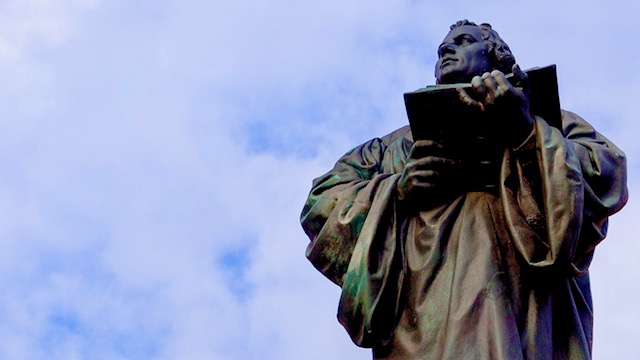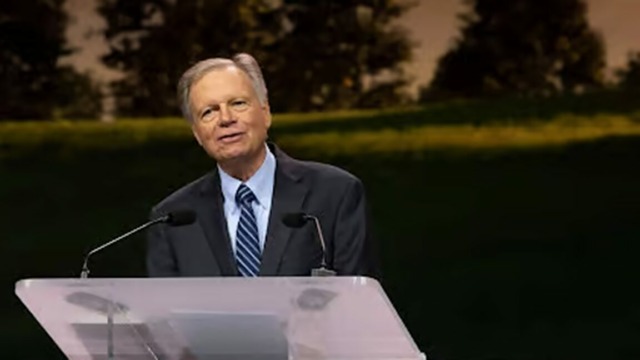By Nathaniel Gamble
October 31 marks a very special occasion and it’s not Halloween. I’m talking about Reformation Day, the anniversary of Martin Luther posting his 95 Theses against Indulgences in 1517 and starting (unbeknownst to him at the time) the Protestant Reformation. Reformation Day has been observed intermittently since the late sixteenth century, gaining in popularity and international celebration as the centuries progressed. The 500th anniversary of Reformation Day was observed throughout the world in 2017, and was the occasion for several Lutheran, Reformed, Anglican, Anabaptist, and a few Roman Catholic commemorations.
Seventh-day Adventists, however, have never really paid much attention to Reformation Day. For various reasons, some of which include jobs, school, family, and church responsibilities, Adventists have mostly been unaware of the importance or significance of Reformation Day. But I believe Reformation Day is an excellent time to demonstrate a winsome witness as a Seventh-day Adventist Christian and invest more deeply in Seventh-day Adventist religious liberty concerns.
For starters, Reformation Day provides us with an opportunity to get to know our neighbors. All of us have friends, family members, and work associates who identity as Catholic, Lutheran, Baptist, Methodist, Episcopalian, and Mennonite, to name a few. Do you know anything about these religious identities? Did you know your Lutheran friend’s religious heritage developed from Luther’s insistence on justification entirely being by Christ’s grace? How about your Baptist neighbor, whose religious tradition goes back to English believers who maintained that those being baptized must be old enough to make a decision for Jesus for themselves? Did you know that both the Methodists and Episcopalians have roots in Anglicanism, which began as King Henry VIII’s own version of Christianity? And did you know that the Mennonites used to be persecuted for their Christian beliefs by Lutheran and Anglican churches, but not by Baptist churches? All of these groups can be traced back in one way or another to the Protestant Reformation, and getting to know these histories will help each of us deepen our relationships with those who call these histories their own.
Perhaps more pressing, however, is the continued need which Reformation Day occasions: to be like Jesus by protecting the freedom of others to practice religion according to their conscience. For all his good, Luther often encouraged princes and other government authorities to forbid the practice of any form of Christianity in their lands except his own. The reformers Huldrych Zwingli and Heinrich Bullinger followed suit in Zurich, as did Martin Bucer in Strasbourg. John Calvin encouraged the same policy in Geneva, even going so far as to encourage the banishment of Jerome Bolsec for denying double predestination and involving himself in the execution of Michael Servetus for denying the Trinity.
Additionally, all these reformers fiercely argued for directing persecution and capital punishment against Anabaptist Christians, and most also argued that Jews and Muslims should be deprived of their religious liberties. Except for Anabaptists, who believed everyone should have the freedom to practice religion according to their conscience, Protestants and Roman Catholics in the sixteenth century felt that religious liberty only applied to their own groups instead of to all groups. For Seventh-day Adventists, the freedom to worship (or not worship) according to your conscience is sacred and must be afforded to everyone–something we learned from the Anabaptists.
So, what should an Adventist do with Reformation Day? My suggestion is to use it as an occasion to better understand God and others. Spend the day reading some histories of the Reformation to better know and understand the world we live in today. I recommend starting with John Bossy’s Christianity in the West, 1400-1700; Diarmaid MacCulloch’s The Reformation: A History; or Brad Gregory’s Salvation at Stake: Martyrdom in Early Modern Europe. Alternatively, you could search for Reformation Day celebrations near you and attend one. Doing this will expose you to the religious experiences of others while providing you with a platform to share Jesus’ love. Of course, there’s always the option of throwing your own Reformation Day celebration. This could be a neighborhood block party, a lunch with a few friends whose Christian denominations you’re interested in learning more about, or just a small family get together to praise God for the ways he has led believers in the past as you look forward to the future he has in store for you.
Finally, consider getting involved in local, national, or global religious liberty efforts. Visit the North American Division Public Affairs and Religious Liberty webpage at www.religiousliberty.info and check out the many resources available to Adventist church members. It identifies several ways to defend and work toward religious liberty for everyone from a Christ-centered perspective. Whatever you do on Reformation Day, do it to the glory of God.
–Nathaniel Gamble is RMC religious liberty director. Photo Win van ‘t Einde on Unspash.




